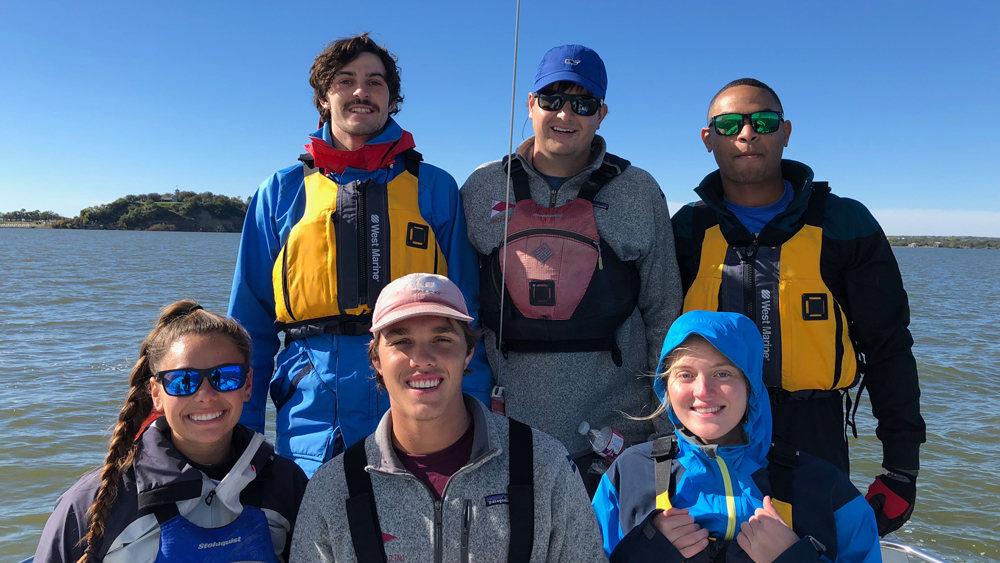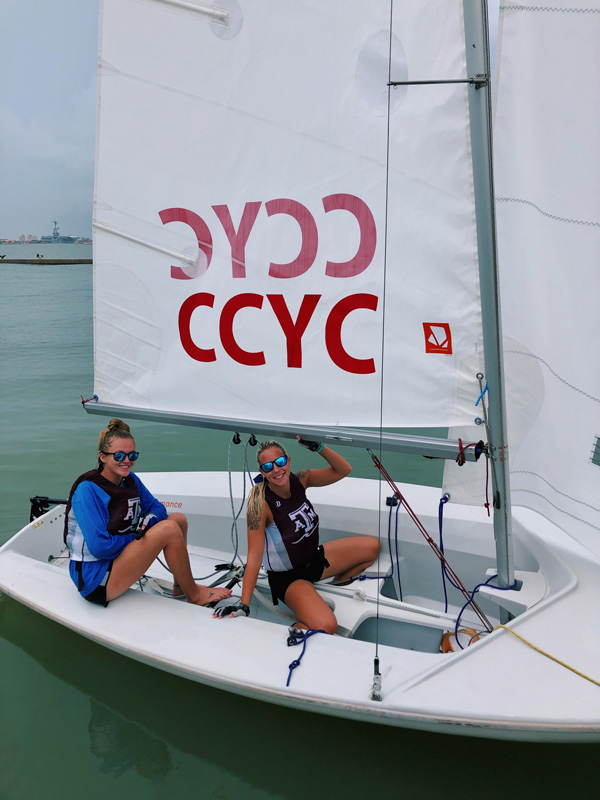
Christa Hvidsten is a senior in the Department of Ocean Engineering at Texas A&M University at Galveston (TAMUG). Originally from Dallas, her enthusiasm for ocean renewable energy led her to pursue a degree in Galveston, where she is surrounded by the very thing she came to study – the sea.
“When I was younger, I did a whole bunch of sailing and watersports and I originally wanted to do oceanography, but I was also really good at math,” said Hvidsten. “Ocean engineering combined by love for the ocean and the environment and renewable energy plus my love for math and science. So once I found ocean engineering, Texas A&M just made the most sense.”
Now, as the shortened fall 2020 semester comes to a close, Hvidsten took a moment to reflect on her time as an ocean engineering student.
Q: What's it like studying ocean engineering right by the ocean?
A: It's pretty cool because a lot of the stuff you see happening around you, just while you're living on the island, you end up relating back to your major. And we've gotten to do a bunch of cool things. Like we got to tour an oil rig and go to this oil rig museum and, for my chemistry lab freshman year, we got to go on a boat and take samples. You're engulfed in the industry that your major is going to be in, so even when you’re just looking off the beach, you're looking at ships, and you're looking at oil rigs. It puts it all into perspective.
Q: One of the unique things about ocean engineering is the duality of our campuses where you get this great waterfront location with Galveston, but you're still part of Texas A&M. What's that like for you as a student?

A: I personally love it because you get all the advantages of going to a big school and a small school. You have the low student-to-teacher ratio and you really get to know your professors super well, and everyone knows who you are. But then you also get to go to the football games and get to go participate in the big Aggie events and Aggie traditions. It's just kind of the best of both worlds in that sense.
Q: If you could describe the ocean engineering department in one word, what would it be and why?
A: Dynamic. They're very willing to adjust to every single student and figure out ways to make it work. Whether that's taking an online class through College Station, even though I attend Galveston or whatever. Just very dynamic and able to maneuver and help each student individually.
Q: Aside from ocean engineering, what organizations are you a part of?
A: I was the TAMUG lacrosse manager and that was fun. I was on the sailing team, and I competed in the collegiate sailing nationals in 2018. I work for the math department grading papers. And, in Galveston, we're opening up an Engineers Without Borders club, and I got selected to be the secretary.
Q: Looking back, what's something you wish you’d known when you first started in the department?
A: It's super challenging, but your professors are there to help you. Do not be scared to ask questions or go to office hours or to raise your hand during class or any of that, because I would get really shy during class and not want to ask questions. But professors are so understanding when it comes to asking questions and such. I wish I'd known that it's not as intimidating as it seems.
Q: What do you plan to do after college?
A: My dream career would be working in any sort of ocean renewable energy, whether that's wave energy or tidal energy or offshore wind farms. I would love to be working off the Pacific Ocean, doing all that.
Q: What led you to that career path?
A: I think my love for the environment and for sailing in general. And the technology behind it is incredibly fascinating. Ever since I was a young kid, renewable energy always kind of stood out to me. And, then, I was able to combine that with my love for ocean-related topics.